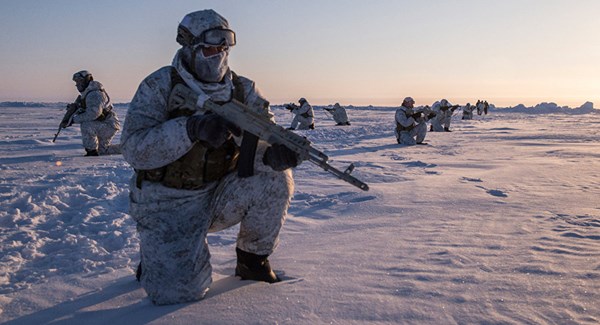Danish intelligence concerned by Russia-US confrontation in Arctic
The geopolitical rivalry between the US, China and Russia is causing tension in the Arctic region to increase, states a report published on Friday, November 29, by the Danish Defense Intelligence Service (Forsvarets Efterretningstjeneste, DDIS). The document contains an analysis of the primary international threats for 2019.
According to the kingdom’s intelligence department, Russia “considers its extended Arctic coastline its most vulnerable flank for an unexpected US precision strike” using cruise missiles. Moscow perceives this as particularly threatening to its “strategic nuclear capabilities,” because most of its potential response measures are linked to the Northern Fleet’s submarines at the Kola Peninsula, the report notes.
The Danish intelligence agency believes that Moscow has been giving special attention to the equipping of its Arctic Trefoil base in Nagurskoye, on Alexandra Land, an island which forms part of the Franz Josef Land archipelago.
The base is part of the Northern Fleet’s military infrastructure in the Arctic. In October, the Northern Fleet’s press service reported that the infrastructure of the more than 14,000 m2 complex was 97% complete.
“The base will most likely become operational in 2020,” the Danish intelligence service believes. The facility will apparently then be the “northern most military base in the world” and an important stronghold of the Russian Aerospace Forces in the region, the document notes.
The report also states that Denmark’s priority is to support international cooperation in the Arctic, as well as to resolve any disputes in the region through negotiation. This goal has become more difficult to achieve in light of the growing geopolitical rivalry between Russia and the US.
In June, Washington published its new strategy for the Arctic, replacing the previous version from 2016. In May, US Secretary of State Mike Pompeo said at a session of the Arctic Council in Rovaniemi, Finland, that he is concerned by Russia’s claims to the “international waters of the Northern Sea Route”. First and foremost, Moscow plans to link this route to China’s Maritime Silk Road.
“These provocative actions are part of Russia’s aggressive behavior model in the Arctic,” Pompeo said at the time.
